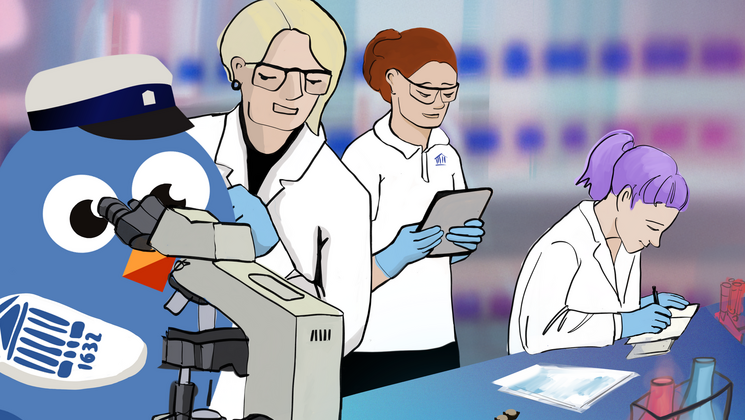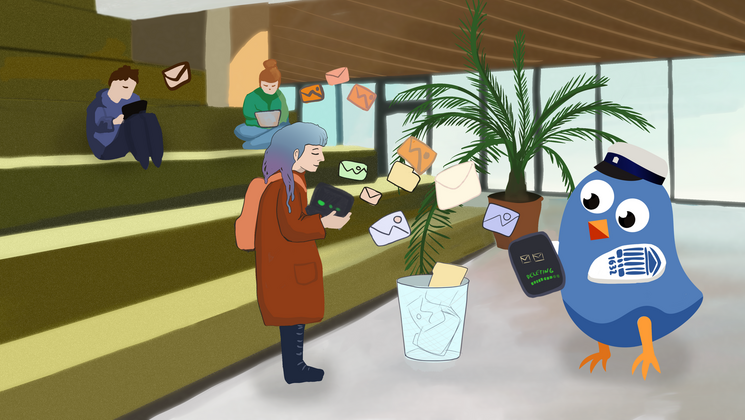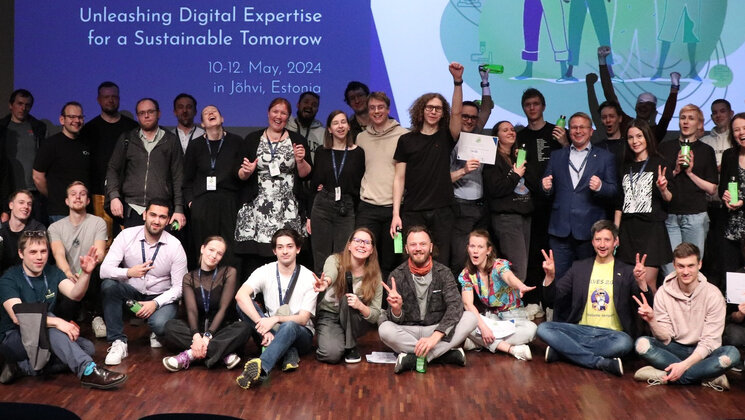University of Tartu experts to advise Ida-Viru municipalities on the action plans of the county’s green plan

The transition of Ida-Viru County to a more sustainable economic model requires changes in the mindset of the local population as well as in the current patterns of the local governments and businesses in the region. Experts from the Centre for Applied Social Sciences at the University of Tartu have gathered experience from different regions of Estonia over the past few years, which can now be used to support the planning of activities related to the climate and energy planning of the municipalities in Ida-Viru County, community initiatives and the involvement of different stakeholders in the future plans of the municipalities.
The aim is to establish contact with all municipalities in Ida-Viru County to explore their plans for implementing the regional green plan and to provide support in finding long-term funding for activities as well as in engaging stakeholders. Particular attention will be paid to those who are often under-represented in decision-making processes, such as young people and the elderly.
The green plan of Ida-Viru County was approved in 2023. Municipalities have then had to put together an action plan to achieve the objectives set out in the green plan. Some municipalities admit that they are struggling to draw up a sustainable plan due to both labour and financial constraints.
The complex art of inclusion
According to project coordinator Elis Vollmer, the goal of the team of the UT Centre for Applied Social Sciences is to find solutions that meet the needs of a specific municipality. Much has changed since the adoption of the Ida-Virumaa energy and climate plan last spring. For example, the support measures of the Just Transition Fund can help develop entrepreneurship, civil society and educational opportunities. However, the capacity of municipalities and stakeholders to make use of these opportunities varies widely. The ongoing power struggles in some municipalities have a particularly strong impact, making it difficult to make long-term plans at an already difficult time. "On the one hand, we are interested in exploring which patterns in the political landscape are conducive to the green transition, and which are hindering it. We are also trying to give advice to municipalities on how to combine the different measures and to find additional funding opportunities to help them take action with a long-term impact," Vollmer explained.
Involving stakeholders, building trust and working together are key to making a long-term plan and outlining effective action. According to Vollmer, the authorities and municipalities of Ida-Viru County are very interested in increasing sustainability and supporting stakeholder cooperation. However, there is often a lack of practical skills in how to create an inclusive debate and find common ground, as well as a lack of people to lead such activities.
"Over the past year, we have been very open with our team in meeting with different parties and just listening to their concerns about the green transition and how they would like to be involved. We will pass on the knowledge we have gained to the municipalities and help them move forward with affordable steps to build common ground," explained Vollmer. It is precisely with the purpose of facilitating the introduction of participatory methods that expert-led seminars by the university will be held in municipalities in the coming autumn to provide an encouraging experience of the potential of inclusion.
Renovation of apartment buildings as a test of collective action
In February last year, the project team attended meetings with apartment associations in Kohtla-Järve, Narva-Jõesuu, Jõhvi and Kiviõli. The associations were introduced to the progress of renovating apartment buildings in Tartu, where old khrushchevkas were turned into smartovkas, that is, renovated buildings with smart energy-saving solutions. In addition to the technical side of the renovation, the focus was also on what the residents of the houses thought about the process and how they adapted to the changes. "In cooperation with Kredex and Tartu Regional Energy Agency, we made the information on renovation as human-centred and simple as possible for the associations in order to relieve worries related to changes and to encourage them to undertake renovations," said Vollmer.
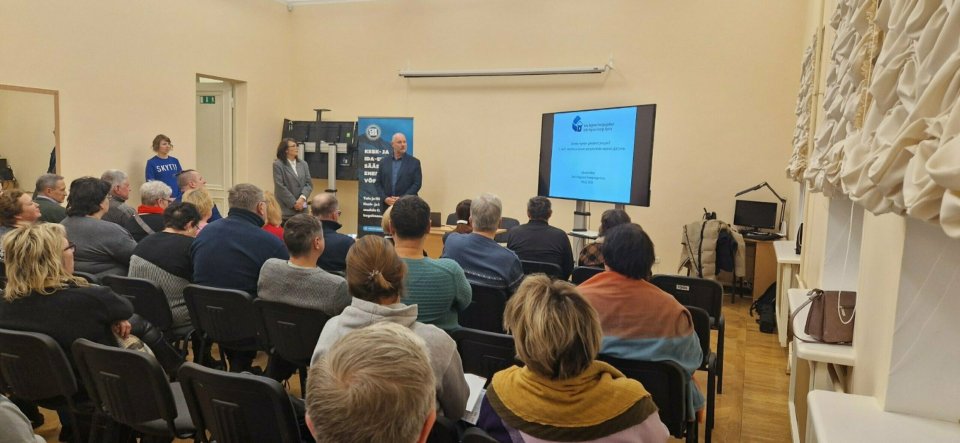
Renovations are an example of how a shift in mindset is needed in the region to get people to act as a community around shared values and goals. In the larger industrial cities of Ida-Viru County, for historical reasons, people often associate themselves with working collectives rather than the surrounding community. This also explains the rather modest social activism of the population in tackling major problems on their own initiative. "The renovation of apartment buildings is one very specific issue where we can encourage people to work together by sharing experiences from elsewhere," Vollmer said with hope.
Renovating the dwelling stock is also very important for the livelihoods of municipalities. Energy poverty has often been overlooked in previous plans, but the rise in heating prices in recent years has amplified this risk. "If municipalities do not prevent this problem, the consequences will be very costly, as they will end up paying the energy debts of their residents through social benefits," Vollmer said.
Good ideas and active youth
In shaping the future of Ida-Viru County, experts involved in the project see great potential in supporting the region's young people and schools. Nearly a hundred young people took part in the green ideas competition, coming up with clever ideas for producing fly protein powder, recycling textile waste and making festival decorations from waste.
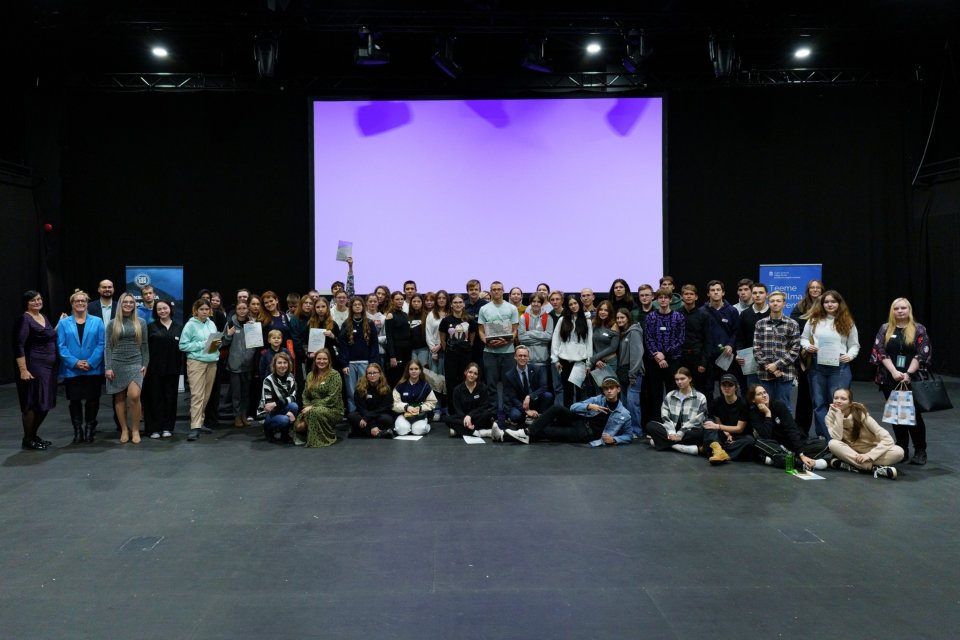
Four teams from three upper secondary schools with a total of a few dozen participants took part in the entrepreneurship competition for upper secondary schools of Narva in October. "Compared to the rest of Estonia, Ida-Viru County has relatively few student companies. There are, however, a lot of active young people who would also like to fulfil their ambitions. The aim of our initiatives was to acknowledge those student entrepreneurs who have actively stood out before and to inspire others to take bolder action," said project specialist Julia Golubeva.
As part of that, entrepreneurship will not be limited to school children. On 10–12 May, the greenathon will bring together environmental, digital and economic enthusiasts to find digital solutions to help push the green transition forward. According to Vollmer, the organisers dream of seeing tangible ideas and teams grow out of the hackathon, which in the future could give rise to real start-ups that attract more green entrepreneurship to Ida-Viru County.
The most practical outcome of the university-driven project could be the completion of annexes to the county's energy and climate plan in autumn, which would enable strategic and effective implementation of the just transition activities. The Ida-Viru County project is part of the larger project "Central and Eastern European Sustainable Energy Union – Design and Implementation of regional Government Initiatives for a just energy Transition" (CEESEU-DIGIT), which supports the development of action plans for energy and climate measures in six high-emission regions of Central and Eastern Europe. The project, led by the University of Tartu, has a total budget of €1.8 million, of which the European Union will contribute €1.75 million.


